THE PRINCIPLE OF DIRECT EFFECT OF THE CONSTITUTION.
The principle of direct effect of the Constitution is enshrined in the text of Art. 5, para. 2, according to which the provisions of the Constitution shall apply directly.
In the doctrine, the Constitution is defined as a “qualified law”, a “law of laws” due to its legal normative nature and the highest rank in the hierarchy of legal acts.[1]
The preamble to the Constitution sets out constitutional principles and values, such as the principle of the “welfare state”. Therefore, the preamble, as an integral part of the “body” of the Constitution, organically belongs to it, which is why it has a legal essence and meaning.[2]
It must be concluded that by “provisions of the Constitution” are meant the constitutional norms and principles, incl. the preamble.
By virtue of the direct effect of the provisions of the Constitution, every citizen and every legal entity may invoke the Constitution in defense of their rights and legitimate interests.
In decision №10 of 06.10.1994 under const. case №4/94[3] The Constitutional Court accepted that “direct effect means that there is no need for a mediating element or unit from a legal and technical point of view for it to occur.
The reference to the Constitution in a dispute in the field of civil, criminal, administrative or any other branch of law does not require a special procedural order for its resolution.
The protection of the right, in which the direct effect of the respective constitutional norms will be applied, will be carried out by the order of the Code of Civil Procedure, the Code of Criminal Procedure or the Code of Administrative Procedure, ie. will be implemented according to the current procedural order.
The resolution of such a dispute will not be binding for third parties, but will only take effect in the specific case. The instance verification of its correctness will be carried out on a general basis in accordance with the current procedural legislation.
This distinguishes the decision of the law enforcement body from a decision of the Constitutional Court, which by virtue of Art. 14, para. 6 of the Constitutional Court Act is mandatory for all state bodies, legal entities and citizens.
The principle of direct effect of the Constitution in the administration of justice
In its judgment №10 of 1994, the Constitutional Court held that direct effect made the Constitution a living, applicable law.
The principle of direct effect of the provisions of the Constitution has as its main addressee the judicial courts, but also the other law enforcement bodies. This means that despite the abstract nature of the constitutional provisions, the judge not only has the right, but is obliged to apply them and decide the case in accordance with Constitution.[4]
The principle of direct effect of the provisions of the Constitution, as a living, applicable law, is also reflected in the case law.
The court has considered a case with legal qualification Art. 49 of the Family Code (FC). The first paragraph of that article stipulates that each of the spouses may request a divorce when the marriage is deeply and irreparably disturbed. In the commented case, this ground for termination of the marriage was missing (due to lack of proof). However, the court found that the claim should not be rejected but upheld.
According to Art. 5, para. 1 and 2 of the Constitution, its provisions prevail over the other provisions of the domestic law of the Republic of Bulgaria, which contradict with them. At the same time, the provisions of the Constitution have direct effect. According to Art. 46, para. 1, assoc. 1 of the Constitution, marriage is a voluntary union between a man and a woman.
This means that the state and specifically the court cannot order the continuation of a marital relationship by rejecting a divorce claim, despite the explicit consent of one of the parties to preserve the marriage. In the shown case, through his claim and the subsequently stated statements in the same sense, the plaintiff stated that he did not wish to continue his marriage with the defendant, ie. the alliance between them has lost its voluntariness.
Therefore, despite the lack of evidence in the case of the existence of a deep and irreparable breakdown of the marriage within the meaning of Art. 49 of the FC, the claim should be upheld by applying the directly cited provision of the Constitution.[5]
The principle of direct effect of the Constitution with regard to earlier existing laws
The direct effect of the constitutional provisions with regard to the existing laws, which contradict the Constitution, is enshrined in § 3, clause 1 of the Transitional and concluding provisions (TCP) of the Constitution. According to the cited text, the provisions of the existing laws shall be applicable on condition that they do not contravene the Constitution.
The Supreme Administrative Court (SAC) held that the formally not repealed Creative Funds Act (CFA)[6] and in particular its Art. 8, para. 3, contradicts with the Constitution. The SAC reached this conclusion by arguing that according to Art. 1 of the CFA, the law regulates the issues of the creative funds, the purpose of which is to promote the all-round development of the creative activity and the implementation of the policy in the field of culture, art and science in the People’s Republic of Bulgaria.
With the amendment of the title of the Constitution, which was in force until 1991 (the amendment was promulgated in SG, issue 94 of 23.11.1990), the existence of the People’s Republic of Bulgaria was effectively terminated. Therefore, it should be considered that the CFA was repealed by virtue of the direct effect of the 1991 Constitution (Article 5, paragraph 2 of this Constitution). The grounds for such a conclusion are given by the provision of § 3, clause 2 of the TCP of the Constitution, according to which the National Assembly repeals those provisions of the existing laws, which have not been repealed by virtue of the direct effect under Art. 5, para. 2 of the Constitution.[7]
For the existing legal provisions, which directly contradict the provisions of the Constitution shall apply § 3, clause 1 in connection with Art. 5, para. 2 of the Constitution.
Existing laws or parts thereof that are in conflict with the Constitution should be considered repealed by virtue of the direct effect of the constitutional norms from the moment of entry into force of the Constitution. This can be ascertained incidentally by any law enforcement authority.[8]
The laws adopted and entered into force during the operation of the 1991 Constitution shall be checked to the extent that their compliance with the Constitution is verified by the Constitutional Court.
Nikolay Pangev-attorney-at-law
References and case law:
[1] Drumeva, E. Constitutional law, fourth supplemented and a revised edition. S.: Ciela, 2013, p. 117.
[2] Ibid., p. 156.
[3] Prom. SG, No. 87 of 25.10.1994.
[4] Tashev, R. General theory of law, fourth revised and supplemented edition. S.: Sibi, 2010, p. 53.
[5] Decision №129 of 15.12.2016 under civil case №259/2016 of the Sredets District Court.
[6] Prom. SG, No. 27 of 03.04.1973.
[7] Order №11061 of 06.12.2002 of the Supreme Administrative Court under case №7248/2002, 5-art. composition.
[8] Decision №5 of 11.06.1992 of the Constitutional Court on const. case 11/1992, Prom. SG, No. 49 of 16 June 1992

